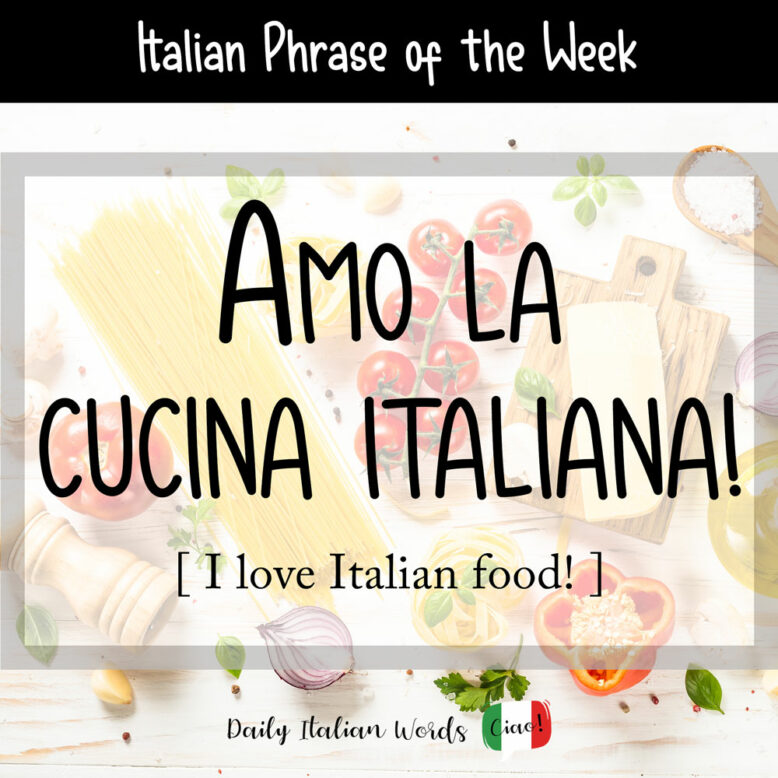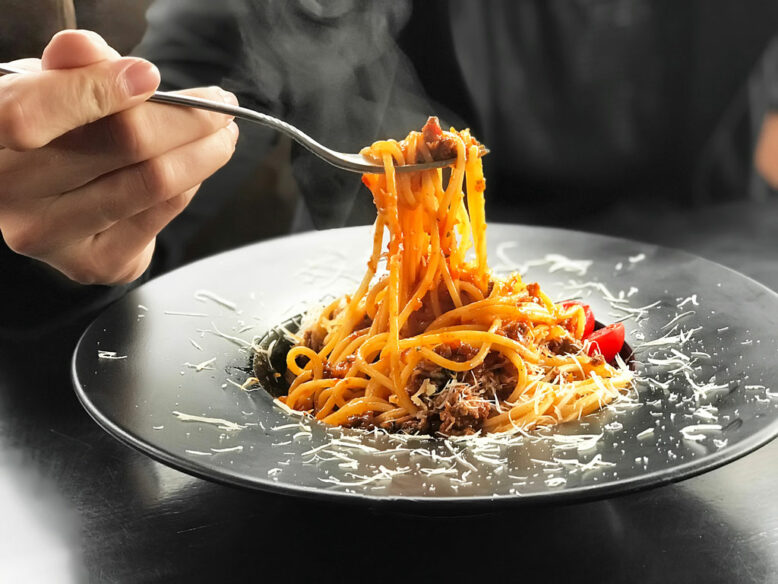A survey carried out by YouGov in 2019 discovered that over 80 percent of people in the world count Italian food among their favourites, followed by Chinese and Japanese. Indeed, I’ve yet to meet a single person who doesn’t rank pizza and pasta highly on their list of go-to foods!
If you are wondering how to express your love for Italian food in the Italian language, this is the article for you! 🙂

First of all, we need to learn how to say “Italian food” in Italian.
The most literal translation for this would be il cibo italiano, with cibo meaning food or nourishment and italiano meaning Italian. However, when we say “Italian food” in English, what we are actually referring to are the dishes characteristic of the Italian tradition. For this reason, the more accurate translation would be la cucina italiana (Italian cuisine). A good tip to remember is whenever it is possible to replace the word food with cuisine in English, you need to use the word cucina in Italian.
The expression “I love…“, when directed towards food, can be communicated in a few different ways in Italian, but the one we’d recommend is (io) amo… (I love…).
(Io) amo la cucina italiana!
I love Italian food!
Note that in Italian, the pronoun can be dropped. This is because it isn’t necessary for comprehension, given that the subject of the verb is evident from the conjugation. So, using the verb amare (to love) as an example, “I love” can be translated as “io amo” or simply “amo“.

Two other expressions that more or less equate to “I love…” in Italian are mi piace tanto (I like a lot / I really like) and adoro (I adore).
Mi piace tanto la cucina italiana!
I love Italian food! / I really like Italian food!
(io) adoro la cucina italiana!
I love Italian food! / I adore Italian food!

If you are a fan of Italian food, but would rather downplay your enthusiasm, you can always resort to the phrases mi piace la cucina italiana (I like Italian food).
Mi piace la cucina italiana.
I like Italian food.
Finally, if you like Italian cuisine but aren’t crazy about it, you can use the phrase non mi dispiace. The verb dispiacere means to regret or to be sorry, but when used in the negative, it can also translate as I don’t dislike (something) or I don’t mind.
Non mi dispiace la cucina italiana.
I don’t mind Italian food.
Heather Broster is a graduate with honours in linguistics from the University of Western Ontario. She is an aspiring polyglot, proficient in English and Italian, as well as Japanese, Welsh, and French to varying degrees of fluency. Originally from Toronto, Heather has resided in various countries, notably Italy for a period of six years. Her primary focus lies in the fields of language acquisition, education, and bilingual instruction.


